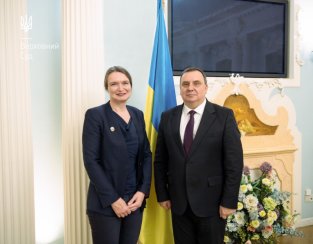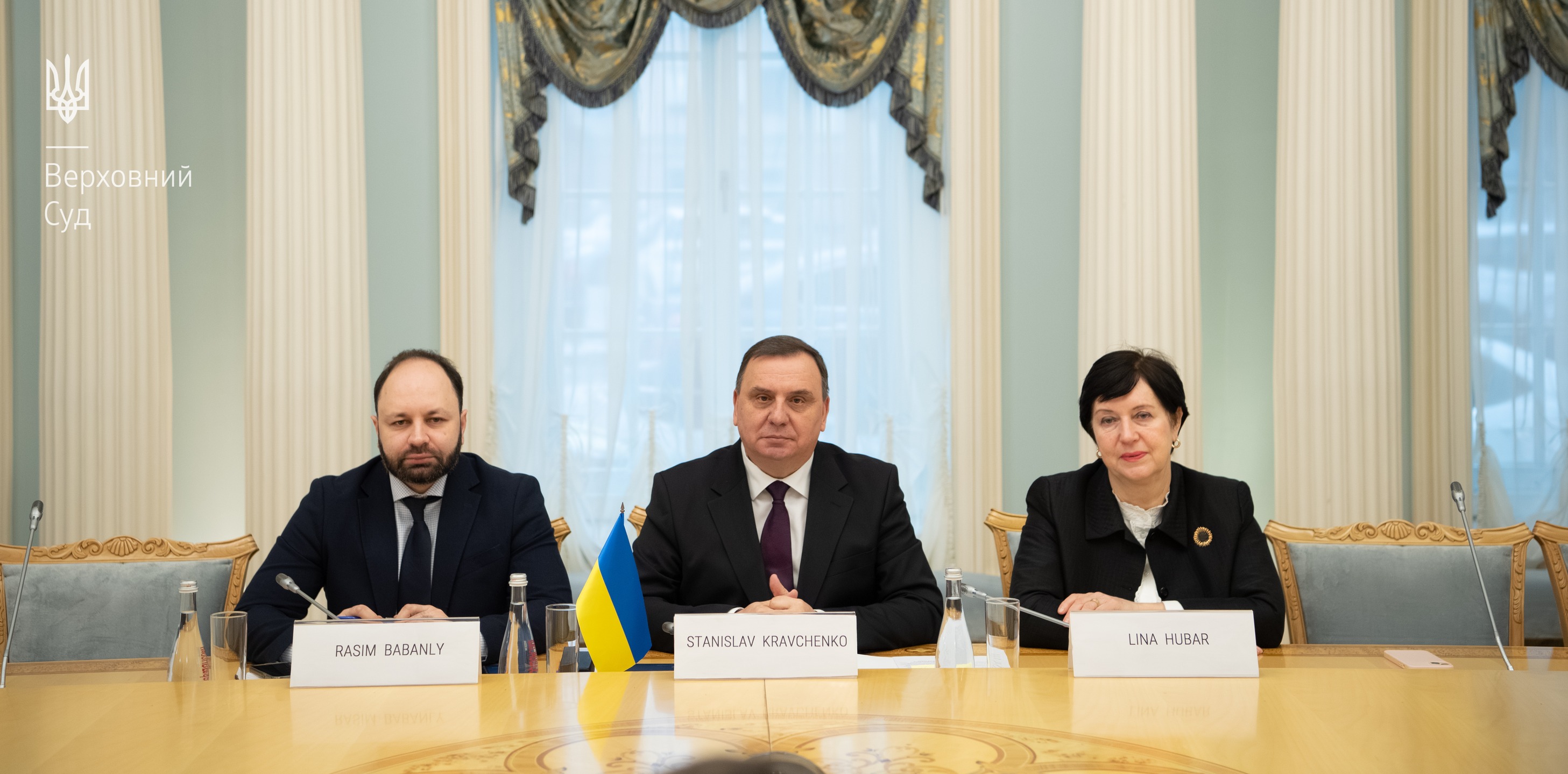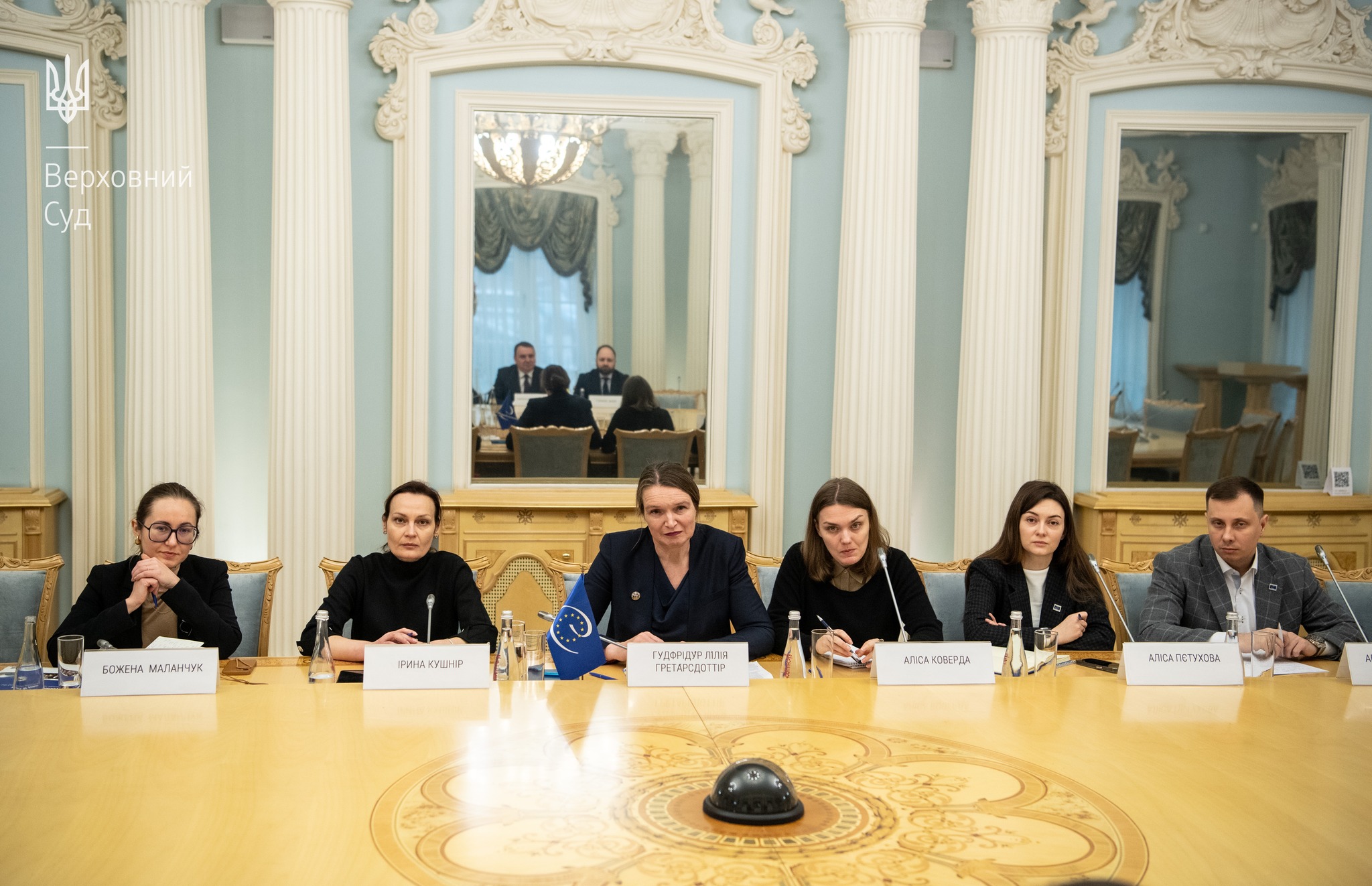Contact center of the Ukrainian Judiciary 044 207-35-46

President of the Supreme Court Stanislav Kravchenko met with Lilja Gretarsdottir, Head of the Department for the Implementation of Human Rights, Justice and Legal Cooperation Standards of the Directorate General for Human Rights and the Rule of Law of the Council of Europe, and representatives of the Council of Europe projects.
First of all, the SC President informed about the general situation in the judicial system and analysed the results of the Supreme Court's work over the past year, drawing attention to the fact that the courts continue to have a tendency to increase their workload.
Thus, while in 2023 the Supreme Court received 86 thousand cases for consideration, in 2024 the volume of proceedings was already 91 thousand.
Of these, more than 40,000 were cases of administrative jurisdiction, mostly disputes over social benefits. The workload is also consistently high in commercial, civil and criminal jurisdictions. At the same time, the war has had a significant impact on the specifics of the categories of cases submitted to the courts. Applications for establishing facts that occurred in the temporarily occupied territories, disputes related to the receipt of payments in connection with the death of a serviceman and other social benefits, criminal proceedings for crimes against national security, etc. have become quite widespread.

In general, according to Stanislav Kravchenko, courts of all instances and jurisdictions receive an average of 4.5 million cases per year. At the same time, along with the excessive workload, there is another, less complicated problem - staff shortages in the judicial system. Competitive procedures are ongoing, but their complexity and duration do not allow for the fastest possible filling of existing vacancies. The Supreme Court is also operating in a staff shortage: almost a quarter of judges' positions are currently vacant.
Summing up, the SC President noted that the Supreme Court managed to cope with the challenges and ensure its effective work, among other things, owing to the reliable support of the Council of Europe, and further cooperation is certainly very important for Ukraine, in particular in the context of European integration processes.

Lilja Gretarsdottir said that the Supreme Court introduces innovations in its activities, ensures maximum openness and makes a lot of efforts to increase the authority of the Supreme Court and the level of public confidence in the judiciary.
The Head of the CoE Department assured that the Council of Europe is ready to continue to provide the judiciary of Ukraine with support and expert assistance that would be useful and meet current needs.
In the context of discussing key areas and specific aspects of further cooperation, Lilja Gretarsdottir focused, in particular, on issues related to European integration, the use of the in absentia procedure, optimisation of judicial selection procedures and increasing trust in the judiciary.
The meeting was also attended by Iryna Kushnir, Project Manager of the CoE Project ‘Support to the functioning of justice in the war and post-war context in Ukraine’; Bozhena Malanchuk, Coordinator of the CoE Project ‘Fostering human rights in the criminal justice system in Ukraine’; Alisa-Tetiana Petukhova, Project Manager of the CoE Project ‘Fostering human rights in the criminal justice system in Ukraine’, Artur Karvatskyi, Legal Adviser of the CoE Project ‘Fostering human rights in the criminal justice system in Ukraine’; Nataliia Okhotnikova, Manager of the CoE Project ‘Strengthening judicial and non-judicial remedies for the human rights protection of the war-affected people in Ukraine’; Rasim Babanly, First Deputy Chief of Staff - Head of the Department for Analytical and Legal Work of the Supreme Court; and Lina Hubar, Head of the Division for International Cooperation of the Supreme Court.